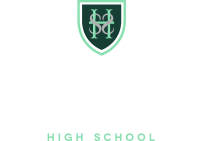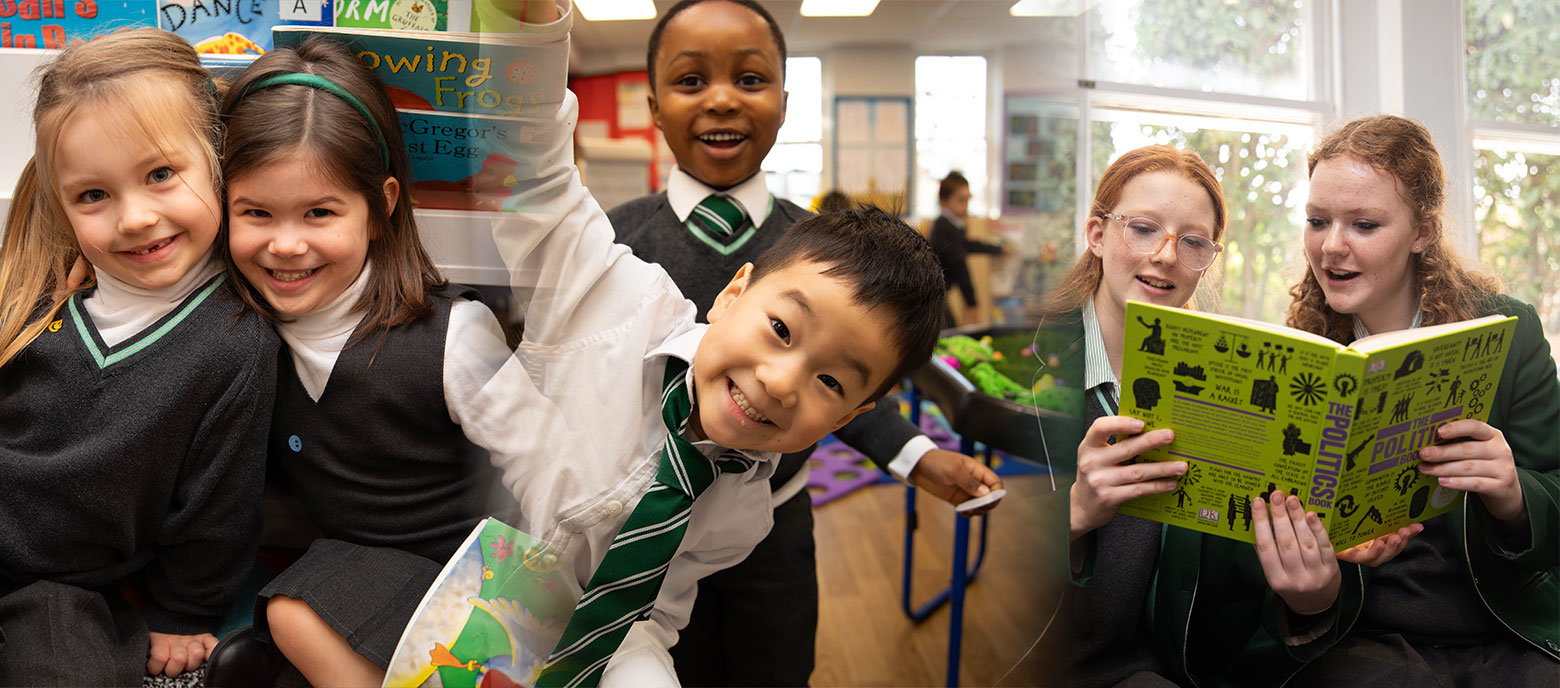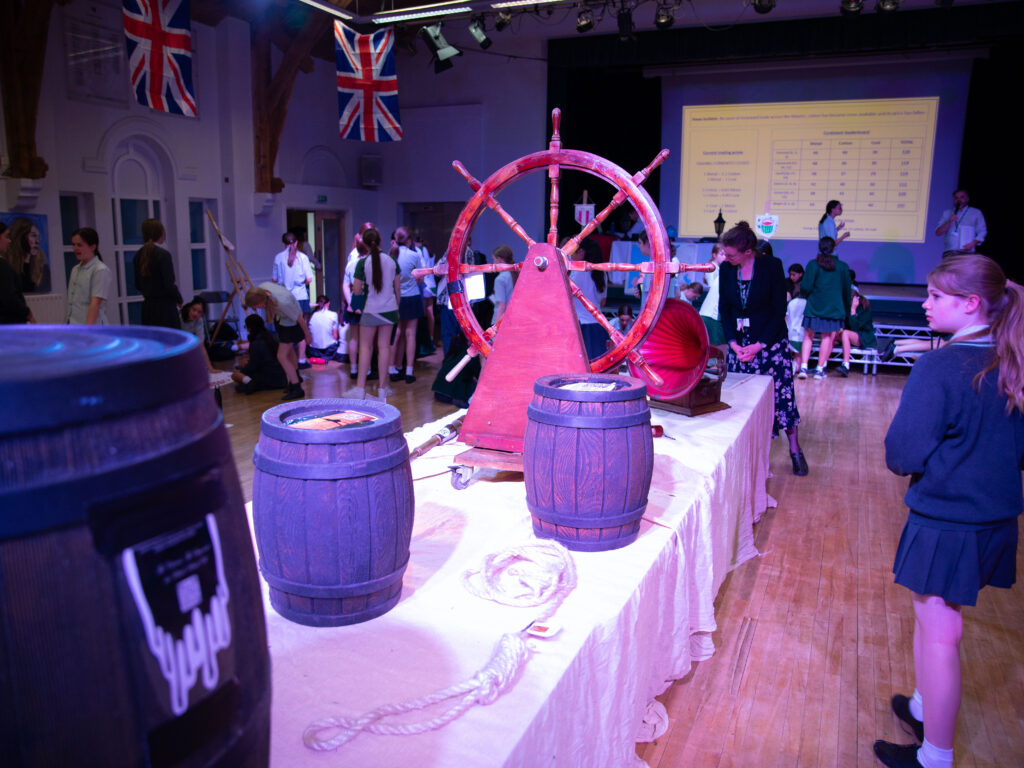The ever-evolving landscape of education demands innovative pedagogical approaches. Experiential learning, an educational approach where pupils learn through direct experience and reflection, has been shown to offer numerous benefits, including enhanced engagement, deeper understanding, and improved retention of knowledge.
At Surbiton High School, we have embraced this innovative pedagogical method to bring history to life, transforming traditional learning environments into immersive, interactive spaces. By engaging pupils in hands-on activities and encouraging them to take ownership of their learning, we aim to cultivate critical thinking, problem-solving skills, and a lasting interest in the subject matter. Our project on the British Empire exemplifies the transformative power of experiential learning, providing a dynamic platform for pupils to explore complex historical themes in a meaningful and impactful way.
Through transforming the rooms of an entire School building into zones themed on different aspects of the British Empire, we explored the transformative potential of experiential learning to enable pupils to secure a deeper grasp of this moment in British history.
Chris Griffin, Director of Drama and Dance, who led the project, said the experience was designed to teach pupils about the British Empire as a whole – ‘’its successes, its drawbacks, its strengths, its flaws,’’ as pupils worked to ‘’create a proper sense of a historical British identity’’.
Rather than use more traditional methods, such as studying from textbooks, pupils actively constructed their knowledge by creating “evidence boards” over the course of their investigation into the British Empire. This process necessitated critical information gathering and analysis of their findings, with the objective to have a more profound and lasting impact on pupils’ knowledge retention compared to passive learning methods.
History, by its very nature, is full of complexity. Some of the rooms in Surbiton High School’s British Empire project were themed on this very notion. One such room was set in a courtroom where pupils debated for, and against, artefact repatriation. Director of Art, Hayley Bowden, explained that the overriding principle was for pupils to form “their own, educated opinions,” and by thrusting them into the heart of a multifaceted issue pupils were compelled to critically evaluate arguments and weigh up opposing viewpoints.
In other rooms, pupils could interact with key historical figures from the period (portrayed by Sixth Form students) or explore different objects like an old gramophone, a bottle of gin, a barrel of rum, sugar, chains and a whip – to name a few. Each artefact had a QR code which would lead pupils on a learning journey. Sometimes that was a survey or a quiz; other QR codes led to articles that pupils had to read. Mrs Paul, Head of Modern Foreign Languages, ran a session exploring the origin of words and phrases that occur within English to demonstrate that “our language is as rich as it is because we have taken words from other languages and from other cultures”.
Chris Griffin commented that pupils were having to “earn, practically, their own understanding”. This is something that Mr Griffin is particularly passionate about, as our world stands on the precipice of a new technological era, saying that “these are the human skills, these problem-solving, investigative skills, that I think are going to be really important for pupils”.
More than just developing subject knowledge, experiential learning also lends itself to the growth of personal skills. By presenting their findings to their peers as the final part of the project, pupils took ownership of the work – and their choices – as they distilled their findings down to what they felt were the absolute key things that led the British Empire to become what it did. Pupils were empowered to, and developed confidence from, showcasing their knowledge and engaging in intellectual discourse.
We are looking forward to our next Empire Day next month.
Categories: Blog Leading, Teaching and Learning Thought-leadership




